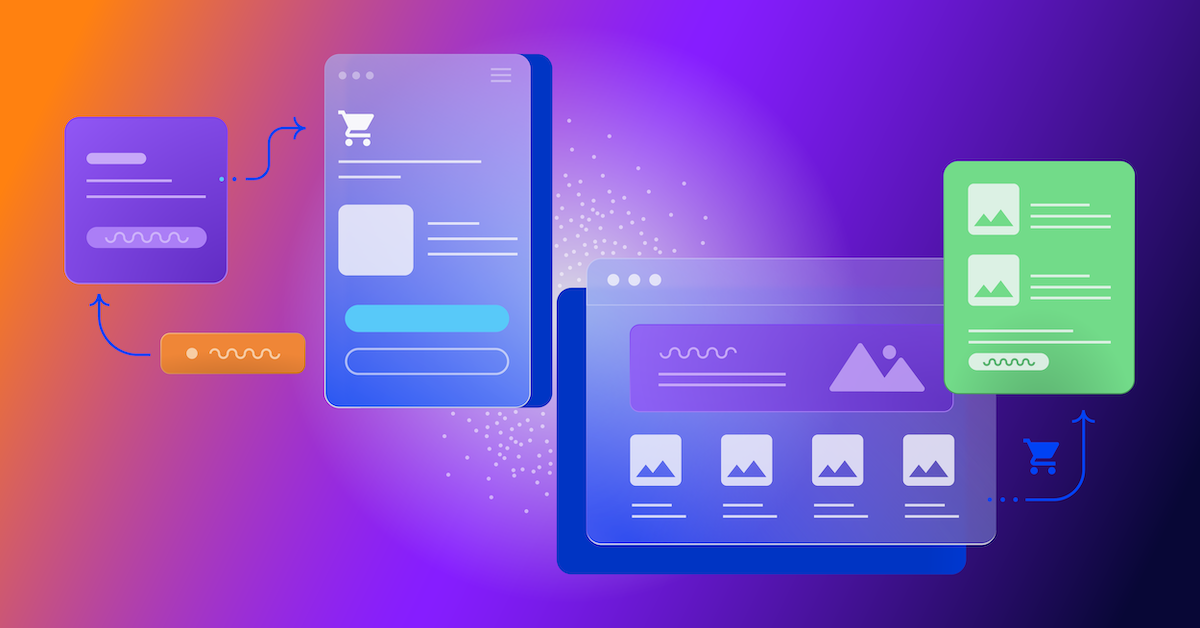Reimagining Commerce 2020: Online shopping trends in Germany
The following ecommerce trends reflect the direction in which commerce is developing in Germany and show how brands and retailers are creating sustainable digital experiences that inspire their customers.

Marc Bohnes

For the fourth consecutive year, Episerver interviewed online shoppers in Germany about their online consumer behavior and expectations as part of its Reimagining Commerce report.
Today's online shoppers enjoy spending more and more time browsing sites and apps and are always just a click away from their next purchase, which is ideally delivered conveniently to their doorstep within 24 hours. These ecommerce scenarios lead to rising expectations directed at brands and retailers. However, directly addressing online shoppers in this complex digital world is a major challenge for many companies.
Mobile first
When shopping digitally, it is primarily mobile: 38 percent of Germans prefer to use their smartphone, followed by laptops and desktop PCs with 28 and 22 percent respectively. Compared to the previous year, this represents a significant increase, as almost 31 percent of those surveyed stated they now use their smartphone much more frequently to buy online. User-friendly shopping apps and functions such as the one-click checkout are certainly decisive reasons for this. If users are looking for information on a specific product or service (e.g., suggested prices, additional color options) 36 percent also consider their smartphone to be the first choice.
It is clear mobile shopping will not slow down. Consequently, it is becoming increasingly important for companies to reach their customers with the right content at the right time on a variety of platformsoffline in the shop and online across the web and social media. Omnichannel commerce continues to set the precedent for ensuring a smooth shopping experience for customers. It further enables companies to view and learn from the entire information paths and purchasing processes of their customers.
Social media and influencer marketing
The increasing use of mobile devices also goes alongside the growing popularity of social media platforms and the corresponding advertising formats. For example, 31 percent of German online shoppers stated that they had already made a direct purchase via an advertising post. 26.7 percent have at least made a click on it.
A similar picture is becoming apparent with regard to influencer marketing, which is increasingly finding its way into the mainstream. Twenty percent of German online shoppers have already visited an influencer's product post and bought the advertised product directly. A further 20 percent have bought the recommended article at least subsequently online or in a retail store.
The report clearly points out that the boundaries between content, social media and influencer marketing are becoming increasingly blurred. All three areas should therefore be part of a comprehensive digital marketing strategy. Brands and retailers, however, have to prove sensitivity here. According to a study by Sprout Social, over half of online shoppers ignore brands that post irrelevant content and another 43 percent ignore brands if they feel bothered by too much advertising. Influencer marketing is another area where companies should choose carefully with whom they enter into cooperation in order to present their own brand authentically.
Online shopping hotspot number one: the couch
As mobile devices become increasingly user-friendly and progressive, the duration of use of the devices increases, of course. No wonder, then, that many users are also comfortably browsing online in their preferred shops at home. A proud 86 percent stated they are most likely to shop online from the couch. In second place comes the workplace with only 9 percent saying they are likely shopping online from this location.
An important trend is emerging here. Online shopping has become a secondary activity for many consumers. If most of online purchases are made from the couch, companies can assume users are watching TV, chatting or jumping between different apps on the side. Conversely, this means they may forget their shopping basket or their actual shopping plans and need to be reminded. Interestingly enough, 23 percent of respondents said that they returned to a website only after seeing the product they had previously viewed or placed in the shopping cart again in an ad. Another 35 percent were baited with coupon codes. The challenge for brands and retailers here is to turn distracted casual browsers into targeted buyers.
The Amazon effect
Forty-two percent of German online shoppers seek inspiration for various products or services on the internet while 22.2 percent make a targeted purchase immediately. The journey usually starts here at Amazon. In addition, almost 76 percent of all German online shoppers compare the products of other shops with the offerings on Amazon.
Amazon is actually one of the main reasons why customer expectations of brands and retailers have risen significantly. They now expect free standard shipping (65.8 percent), tracking (48 percent), free returns (45 percent) and a user-friendly product search (36 percent) when shopping online. Amazon also impresses with its large product selection (35 percent) and pricing (30 percent). For companies, it is important to offer these features in their shop as well, in order to prevent customers from leaving for the competitors.
Personalization and data protection
Brands and retailers always walk the thin line between personalized targeting and user experience and the protection of customer data and privacy. In fact, German online shoppers are less interested in personalization than other countries worldwide. Only eight percent of German online shoppers said that brands and retailers should set their priorities higher in this area in 2020. For 28 percent an even lower level of personalization would be OK.
Even when it comes to protecting their online anonymity, Germans are less worried than other countries. Only 33 percent of those surveyed believe that brands and retailers should protect them better compared to 49 percent in the UK and 53 percent in the United States.
This is probably due to the much stricter privacy and data protection laws in Germany, which mean that German online shoppers are currently mostly satisfied with the degree of personalization and data protection provided by brands and retailers.
Differentiating digital experiences for German online shoppers
One thing is for sure: 2020 will be an exciting year for brands and retailers. To survive in the world of commerce and successfully differentiate themselves from the competition, companies must rely on a seamless omnichannel experience, targeted social media and influencer marketing strategies and a sophisticated personalization plan.
